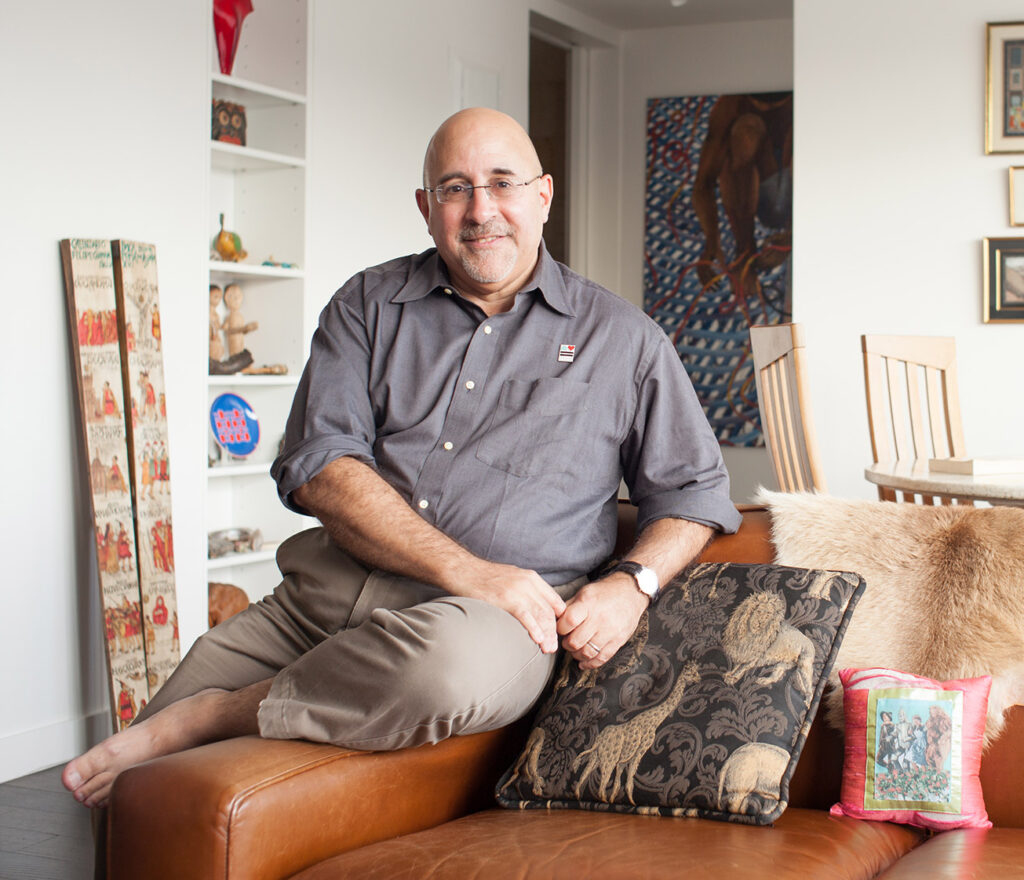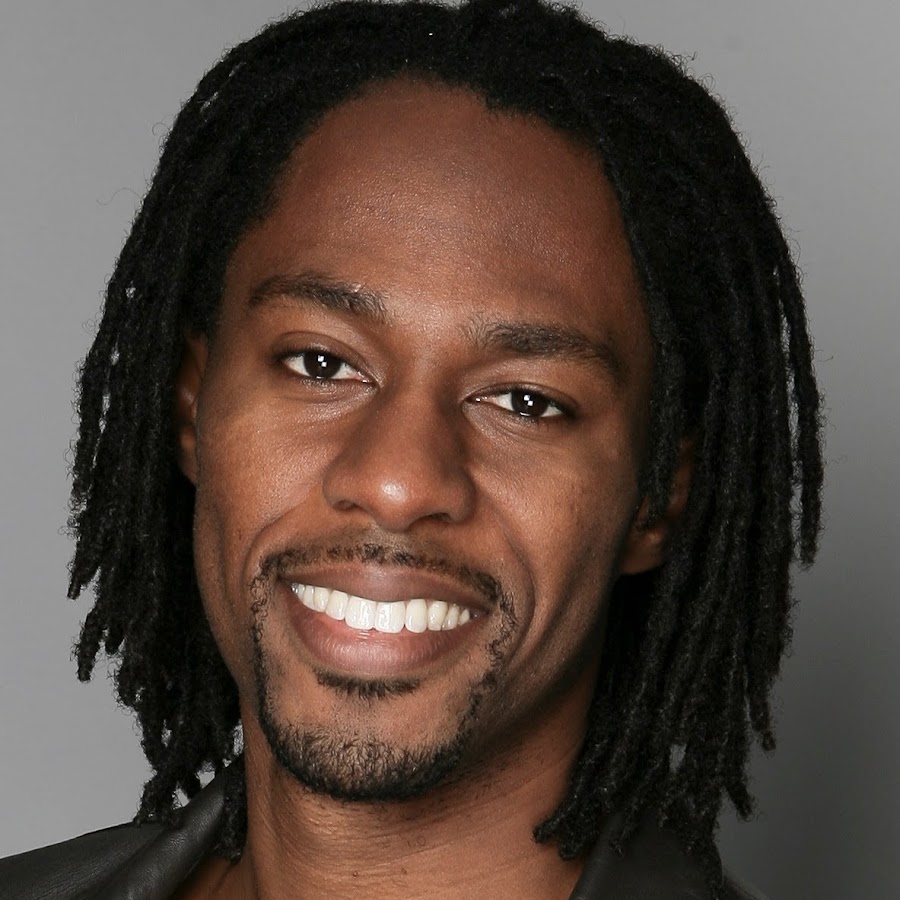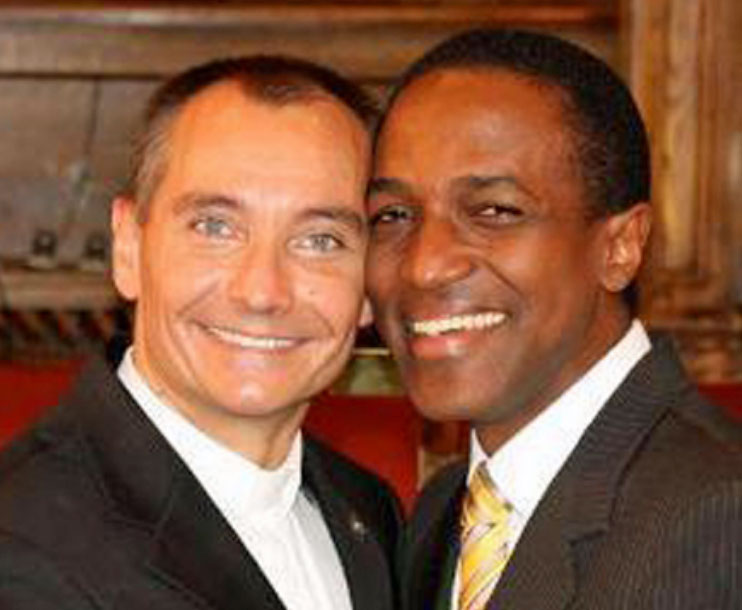Can Jamaicans’ anti-LGBT attitudes shift as Americans’ did?
Maurice Tomlinson of Jamaica and Canada has been involved in…
COMMENTARY. The United States has seen a radical shift in attitudes toward LGBT people, while Jamaica has not. Why is that? Two commentators have shed light on differences between the two societies and between LGBT activists’ tactics, which may help uncover how Jamaicans’ minds might be changed.

In the U.S., the level of public support for LGBT Americans — which stood at an abysmal 11.6% in 1988 grew more rapidly than for any other marginalized and oppressed group in history. At present, the level of positive views of gays has reached nearly 68%.
In Jamaica, by contrast, anti-gay sentiment is somewhere around 80 to 90 percent.
Before the shift in Americans’ attitudes, visionary American lawyer Evan Wolfson hypothesized that if more Americans witnessed the loving relationships of LGBT people in the form of marriage, then anti-gay attitudes would substantially ameliorate.
Wolfson’s premise was simple: supporting love costs potential allies nothing and so could easily win over most Americans to the cause of equality. Wolfson’s strategy of assimilation sought to popularize the “radically normal” reality of LGBT people.
However, Wolfson’s strategy was often rejected by many of his LGBT activist colleagues who accused him of “selling-out” to a heteronormative paradigm. Wolfson was also berated for wanting to forgive instead of seeking justice from a society that had threatened, abused, and even killed many queer US citizens.
However, Wolfson believed that achieving a more tolerant society was more valuable than a sense of fairness. His controversial but strategic decision was to co-opt the language and values of opponents in the fight for LGBT equality. This strategy ultimately proved successful and the federal recognition of marriage equality in the US has ushered in the recognition of many other rights for LGBT people while also helping push the level of positive views about gays to nearly 68%.

In Jamaica, UK-based Jamaican psychologist Dr. Keon West researched public attitudes towards LGBT people in Jamaica, a country that has been called “the most homophobic place on earth”.
West’s research found that Jamaica’s legal landscape remains more hostile towards LGBT people than the United States. For example, in the US homosexuality was decriminalized in 2003 (Lawrence v Texas) while in Jamaica male same-sex intimacy remains punishable with up to ten years imprisonment at hard labour. In 2012 Jamaica’s so-called “” was made worse as upon their release convicted gay men must now register as sex offenders and always carry a pass or face further imprisonment of up to twelve months plus a fine of J$1 million (about US$6,800) for each offence of not having the pass. Jamaica also introduced a constitutional ban on same-sex unions, including marriage.
Dr. West points out that activism on the island against these statutes, including court challenges, have reduced the level of support for anti-gay laws. However, West also mentioned that paradoxically the level of anti-gay sentiment increased over the same period with one local newspaper reporting an sharp increase from 80% to 90%. This antipathy towards LGBT Jamaicans is one of the reasons why they have suffered appalling acts of violence including home invasions, mob attacks and murders.
Dr. West identified that the following factors contributed to sexual prejudice in Jamaica: education, income, age, religion, music (dancehall), and gender norms. Jamaicans with more education and income were found to show greater acceptance of LGBT people, and West theorized that one possible way to change hearts and minds towards sexual and gender diverse people in the resource-poor country is to provide increased educational and financial opportunities.
Contrary to the views of many local activists, West found that age does not appear to be a good predictor of anti-LGBT prejudice as young and old Jamaicans share the same negative attitudes. So, intergenerational reduction in national homophobia is not a reasonable prospect.
Despite being a very religious society that is purported to have the most churches per square mile, West found that Christian Biblical interpretations against homosexuality are not as critical to the implicit bias most Jamaicans hold against LGBT. However, West notes that anti-LGBT Christian groups on the island have started mounting large events to condemn same-gender love.
Jamaica’s most popular music, dancehall, was found to be a major contributor to anti-LGBT attitudes. This music contains many violent lyrics that call for, among other things, the rape of lesbians and the stoning and burning of gays. West points out that successful advocacy by LGBT groups in and outside of Jamaica have resulted in a ban on many anti-LGBT musicians and a significant reduction in the production and distribution of homophobic music.
Finally, Dr. West concludes that gender and gender norms contribute the most to anti-LGBT attitudes in Jamaica, as men are consistently more homophobic than women. West therefore posits that by engaging in the hard work of deconstructing gender norms in the country, Jamaican activists will see a swifter change in attitudes towards LGBT residents. Unfortunately, West does not provide much guidance on how he proposes that these gender norms can be successfully challenged on the island.
As an activist for the human rights of LGBT Jamaicans for over two decades, I have been both fascinated and frustrated by the work to change the anti-LGBT laws and attitudes in my homeland. At various times I have therefore adopted parts of the strategies outlined by Wolfson and West.
For example, I have appeared before the most senior tribunals in the western hemisphere both as claimant and litigant challenging laws that criminalize my life and love. I have also organized public visibility campaigns such as Montego Bay Pride, hosted religious dialogues on the issue of anti-sodomy laws and campaigned to increase positive media representation for LGBT Jamaicans. A decade ago, my same-sex marriage received significant media attention in Jamaica, and I have since received very strident support from national opinion leaders for my challenge to the constitutional ban on same-sex marriage.
Even though I switched from being a Jamaican lawyer to a Canadian nursing student I still want to return to live in Jamaica someday with my husband. Therefore, the work to end anti-LGBT prejudice on the island remains of particular interest to me.

The work to end homophobia straddles the twin and often opposing objectives of liberation and assimilation. Liberation usually follows violent revolution, while assimilation is more evolutionary and peaceful. Research seems to support the idea that assimilation is usually more successful in converting most of the population to the cause of equality, but only after sometimes extreme liberation efforts have raised the profile of the oppressed group.
As civil rights movements mature and evolve their strategies must also change. With respect to achieving human rights for LGBT Jamaicans and ending anti-gay prejudice, it appears that the strategies of legal challenges, visibility campaigns, and religious engagement have yielded as much as they possibly can. Now it maybe time to deploy a strategy of either challenging gender norms (very hard to do in this hyper-masculine and patriarchal society) or focusing on the “normalcy” or LGBT relationships.
As a married gay man living in Canada, I feel that I am in a position to help de-stigmatize same-gender unions while my colleagues on the ground in Jamaica are better placed to pursue the work of transforming gender norms. However, I suspect that both approaches will feed into each other as we work to ensure that Jamaica’s national motto of “Out of Many One People” will one day fully include LGBT people.
This commentary includes information from the NPR podcast “Radically Normal: How Gay Rights Activists Changed the Minds Of Their Opponents”.




